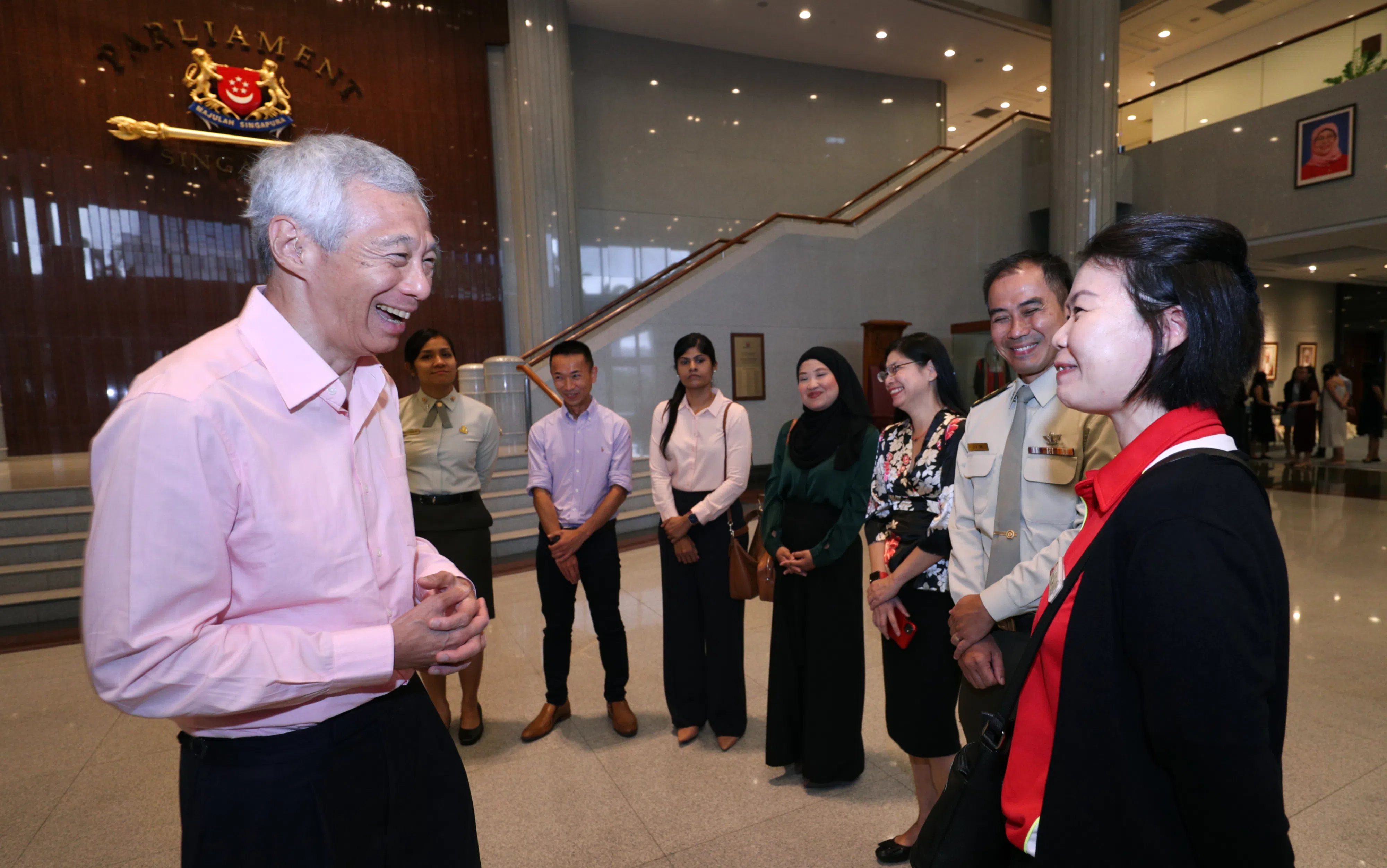Covid-19 White Paper aims not to critique but draw lessons after honest appraisal: DPM Wong

Sharon See
THE point of the Singapore government’s Covid-19 after-action review (AAR) is not to look back and critique the past with hindsight, but to be honest in appraising its own actions and learn from the experience, Deputy Prime Minister and Finance Minister Lawrence Wong said in Parliament on Monday (Mar 20).
He set out three lessons from the crisis, as well as corresponding actions to be taken: fortifying the public health system, enhancing forward-planning capabilities, and strengthening national resilience.
“The point is… to unpack how and why certain decisions were made at those points, what assumptions were held then, which considerations should have been weighed differently, and how we can do better the next time,” Wong told Parliament. He was speaking during the debate on a White Paper that reviewed the government’s Covid-19 response, released earlier in March.
He gave a recap of some lessons from the White Paper. First, to fortify the public health system ahead of the next pandemic, Singapore will set up a dedicated centre for public health, similar to other countries’ centres for disease control.
Second, to improve forward-planning, a dedicated team will be established in future pandemics.
Third, Singapore will strengthen its resilience – whether in supply chain diversification, being adaptable or safeguarding the reserves. Public infrastructure and other facilities will be designed to be “multi-use”, so they can be repurposed in a crisis.
Navigate Asia in
a new global order
Get the insights delivered to your inbox.
Reflecting on the pandemic, Wong – who co-chaired the Covid-19 multi-ministry task force – said Singapore’s experience with severe acute respiratory syndrome (Sars) in 2003 helped it avoid a cold start with Covid-19, but led to some wrong initial assumptions.
These wrong assumptions led to a U-turn on mask-wearing policies, as well as insufficient infection protocols in migrant worker dormitories. Safe management measures were too complicated at times, while border measures were among the toughest judgment calls to make, he added.
But the nature of a crisis is that information will always be incomplete, he said: “We have to judge what is the best way forward, based on what we know, and respond quickly – rather than wait for all the facts to come in, by which time it might be too late to act.”
The aim of the White Paper is not to rate the government’s performance, he added: “We have done our best, and that is what matters.”
Wong expressed thanks to Singaporeans and frontline workers for their contribution in the fight against Covid-19. Representatives of a diverse range of frontline workers, including medical workers and public transport staff, had been invited to attend Monday’s parliamentary sitting as a show of appreciation. At the start of the debate, MPs gave them a standing ovation that lasted 20 seconds.

In a lengthy review of how the outbreak among migrant workers was handled, Manpower Minister Tan See Leng said the government could have done more surveillance testing and communicated better to reassure workers.
He detailed three reforms based on lessons learnt: new dormitory standards, a new primary healthcare system for migrant workers, and resources to build awareness of and support mental health issues.
The government will continue to strengthen regulatory levers on dormitory operators, with the scope of the Foreign Employee Dormitories Act being expanded from Apr 1.
Eighteen MPs spoke during the debate, which continues on Tuesday. The motion is to express gratitude to Singaporeans who contributed to the Covid-19 fight, affirm the government’s effort to learn from the experience, and endorse the White Paper.
Louis Ng, MP for Nee Soon GRC, noted that it took a pandemic for the government to “achieve the last mile” in electronic payment of salaries for migrant workers in dormitories – since employers had no other way of reaching workers in lockdown.
Noting that these digital records can help prevent salary disputes, he asked if electronic payments could be extended to all workers, whether or not they live in dormitories.
Leader of the Opposition and Workers’ Party MP for Aljunied GRC Pritam Singh set out his party’s role in the crisis: bringing public concerns to Parliament and supporting national efforts by dispelling misinformation and encouraging vaccination.
But he noted that in 2020, he had suggested an independent body be appointed to conduct the review. The White Paper was instead prepared by the Prime Minister’s Office, drawing on an AAR by former head of the civil service Peter Ho.
Asking why the government decided against publishing Ho’s report, Singh said: “To publish the original AAR report would be consistent with the spirit of the motion, which seeks to affirm the government’s effort to learn from the experiences of the last three years.”
Fellow MP for Aljunied GRC Gerald Giam took issue with the White Paper’s statement that “in hindsight”, the government could have encouraged Singaporeans to wear masks early in the pandemic.
He said that government statements show that as early as January 2020, the government knew that asymptomatic transmission of the virus could occur, and that local doctors had urged Singaporeans to “wear masks always” even if they were well.
“This was not hindsight – it was what the... doctors advised in the first place, which the government did not heed,” he charged.
Decoding Asia newsletter: your guide to navigating Asia in a new global order. Sign up here to get Decoding Asia newsletter. Delivered to your inbox. Free.
Copyright SPH Media. All rights reserved.


